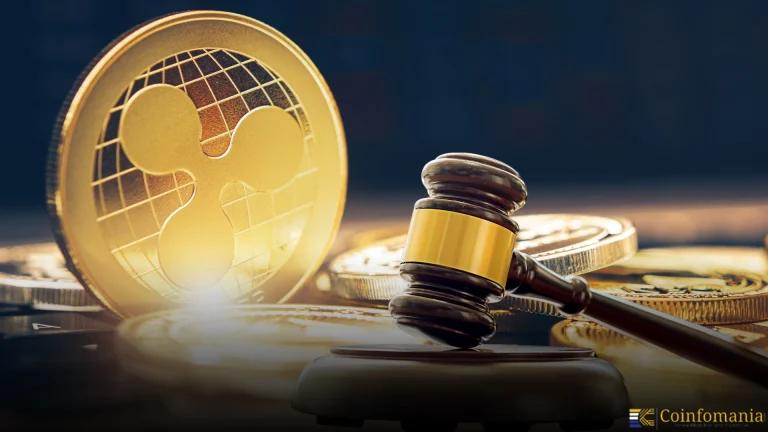Crypto Regulations in Croatia
In 2025, the Croatian legislation provides a fair balance between accepting innovation and placing clear, unambiguous rules in its jug. Cryptocurrency ponies like Bitcoin and Ethereum are not under any prohibition, but rather are neither recognized as legal tender. Virtual assets are considered a marketable resource to be traded and invested in, like stock or […]

In 2025, the Croatian legislation provides a fair balance between accepting innovation and placing clear, unambiguous rules in its jug. Cryptocurrency ponies like Bitcoin and Ethereum are not under any prohibition, but rather are neither recognized as legal tender. Virtual assets are considered a marketable resource to be traded and invested in, like stock or real estate.
The crypto businesses like exchanges must register with HANFA (Croatia’s financial watchdog) and comply with strict anti-money laundering regulations. Thus, legitimizing the workings of crypto trading while netting out fraud and corruption.
Taxation-wise, Croatia says it’s a straight 12% tax on your profit when you sell crypto for euros or any other currency. Cryptocurrencies could be traded tax-free against other cryptocurrencies until fiat is not involved.
As an EU member state, Croatia has prepared itself for MiCA (Markets in Crypto-Assets Regulation) that would further buttress rules to be made more transparent by as early as 2026. In that perspective, it equally means that the same balance as regards financial technology growth and investor protection and stability should be extended to Croatia.
Historical Context
The way cryptocurrency is regulated in Croatia has slowly evolved, following worldwide trends and local financial goals. Croatia has cautiously moved to bring digital assets to court, shielding itself from attendant risks.
Key milestones:
- 2017: Croatia’s National Bank (HNB) declared crypto not legal tender.
- 2021: Implemented AML/CFT regulations for virtual asset providers.
- 2023: Introduced a 12% capital gains tax on crypto-to-fiat conversions.
- 2025: No dedicated crypto license, but HANFA registration mandatory for exchanges.
Regulatory Framework
Key Regulatory Authorities
- Croatian National Bank (HNB)- Sets the monetary policy while asserting that cryptocurrency is not regarded as legal tender in Croatia.
- HANFA (Croatian Financial Services Supervisory Agency): Register of Businesses in the Crypto complies with AML Compliance.
Key Rules in Effect:
- Banks can’t process crypto payments (HNB policy).
- Mandatory customer checks for all transactions.
- Suspicious activity must be reported immediately.
- No preset transaction limits; however, above certain amounts, transactions undergo closer scrutiny.
Croatia’s Crypto Policies
1. Market Positioning
- Legal Status: Taxable property as per Article 14 of the Financial Assets Act with explicit exemption from currency status.
- EU Alignment: MiCA compliance to be completed by Q3 2026, with gradual implementation of travel rules (2024) and licensing (2025).
- Market Vision: Government statements emphasize regulated crypto growth, avoiding claims of regional hub status.
2. Fiscal Approach
- Retail Investors:
- 12% capital gains tax on crypto-to-fiat conversions
- €2,500/year tax-free allowance for private traders
- Businesses:
- 18% corporate tax on crypto-related profits
- No confirmed transaction levy (under parliamentary discussion)
- Miners:
- Taxed as standard business income (10-30% rates)
- No special energy taxes enacted as of 2025
3. Innovation Support
- Regulatory Sandbox:
- Proposed 12-month testing program at Split Tech Park (pending 2026 budget approval)
- Talent Initiatives:
- Potential STEM grants for blockchain education (not yet funded)
- Infrastructure:
- Public consultations are ongoing for a possible state-backed custody solution
Croatia’s Approach to Crypto Innovation
Practical adoption and regulatory flexibility organize Croatia’s forging of crypto innovation. Indeed, Zagreb has become a burgeoning hub for fintech startups incorporating blockchain-based solutions. Within the travel industry, select hotels and restaurants engage with Bitcoin and Ethereum through third-party payment processors, aiming especially to please foreign visitors.
Taxing returns from staking or mining as regular income rather than capital gains brings sanity to individuals undertaking either venture. While adhering to some of the AML securities, Croatia’s balanced manner in outlining provisions gives room for controlled growth in ventures related to cryptocurrency.
Main Hurdles and Concerns
Croatia faces three main regulatory challenges:
- Gaps in regulation – Lack of clarity on DeFi, NFTs, or stablecoins generates legal uncertainty.
- Banking Hurdles – Most institutions still block crypto transactions, hampering accessibility.
- EU Compliance – Full MiCA implementation by 2026 imposes heavy regulatory changes.
These challenges signify a constant conundrum for Croatia, where innovative strides are usually accompanied by adverse effects in financial stability and soundness as the sector grows.
Key Rule Updates and Future Possibilities
What’s Happening Now
- HANFA is increasing the monitoring of crypto companies.
- Parliament is debating cutting crypto taxes from 12% to 10%.
What’s Coming Next
- 2026 EU Rules: Full MiCA adoption will bring standardized licenses.
- Digital Money: Croatia’s central bank is testing the digital euro.
- Tourism Boost: More hotels and shops may start accepting crypto.
Conclusion
Croatia is weaving a balanced crypto ecosystem: fostering innovation while ensuring stability. The regulations will be revealed in detail, covered by EU alignment. Thus, probably the brightest hub for responsible growth in digital assets in Southeast Europe could be expected. A bright future awaits Croatia’s crypto economy.
FAQs
1. Is cryptocurrency legal in Croatia?
Yes, cryptocurrencies are permitted to possess and trade properties in Croatia, but cannot be construed as legal tender because they cannot be used for official payments.
2. Do I have to pay taxes on crypto profits?
Croatia applies a 12% capital gains tax when converting crypto to regular money. Currently, there’s no tax on switching between different cryptocurrencies.
3. Is the crypto industry regulated in Croatia?
Yes, all crypto exchanges must be registered with HANFA and comply with anti-money laundering (AML) regulations. The usual time for registration varies between three to six months.
4. Can businesses besides themselves receive crypto payments?
Not illegal, but has a legal gray area as barter transactions. Businesses usually prefer customers to pay with fiat since it is easier to comply.
5. What are the penalties for crypto research institutions operating out of premises?
Unregistered VASPs face fines up to €500,000 and may be forced to stop operations. HANFA may also black-list non-compliant platforms from the Croatian market.
6. What are the requirements for reporting cryptocurrency transactions?
Exchanges are mandated to report dubious transactions to authorities. Individuals must declare their cryptocurrency holdings and any gains from it during annual tax filings.
7. How is the taxation regime for crypto staking in Croatia?
Benefits of staking are regarded as taxable income under general income tax rates (10-30%), as opposed to capital gains tax.
8. Will Croatia someday introduce a digital euro?
The Croatian National Bank participates in the progress of the research into the digital euro conducted at the ECB. National CBDC plans do not exist now. Any implementation would follow only after all EU-wide adoption.
9. Do banks refuse any crypto transaction?
Yes, some Croatian banks are halting all transactions toward or from crypto exchanges because of risk concerns.
10. Are NFTs and DeFi platforms regulated?
There exist no regulations yet for NFTs or DeFi. Legal gray zone pending EU-wide rules.
Follow us on Google News
Get the latest crypto insights and updates.
Related Posts

Ripple Highlights Custody as Key to $18.9T Tokenized Assets by 2033
Shweta Chakrawarty
Author

Hong Kong SFC Issues New Custody Rules for Crypto Platforms
Shweta Chakrawarty
Author

South Korea and Vietnam eye $150B trade despite Trump tariff
Shweta Chakrawarty
Author